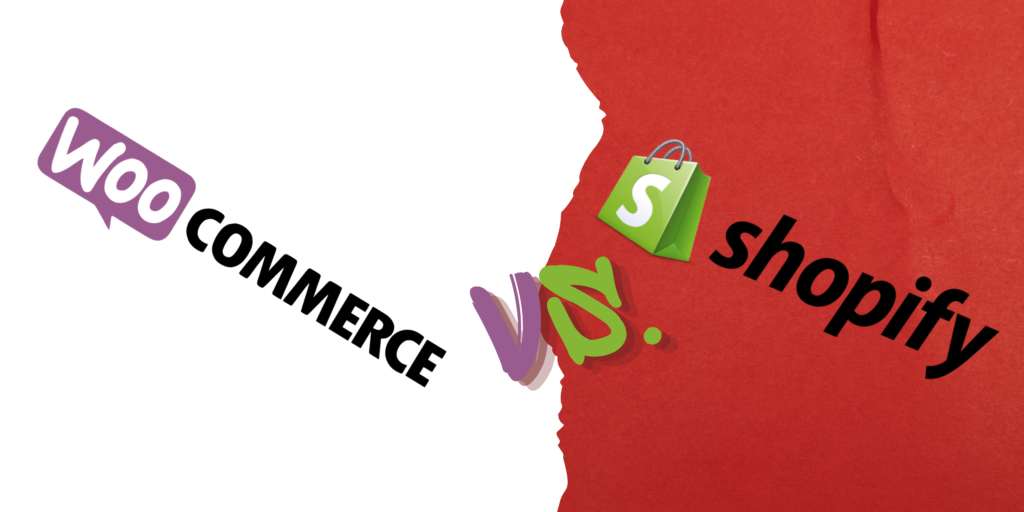Shopify vs WooCommerce: Which Platform is Best for Your eCommerce Store?

Choosing the right platform for your eCommerce business is a critical decision that impacts everything from your website’s functionality to your long-term growth strategy. Two of the most popular platforms available today are Shopify and WooCommerce. Both platforms offer unique advantages and cater to different types of businesses. In this detailed comparison, we’ll look at how these platforms stack up against each other in key areas such as ease of use, pricing, customization, scalability, and security. Additionally, we’ll explore how Hire eCom can assist your business in leveraging these platforms effectively for growth and success.
Shopify vs. WooCommerce: A Quick Overview
Shopify
Shopify is a fully hosted eCommerce solution that enables business owners to create, manage, and scale their online stores without worrying about technical aspects such as web hosting, software updates, or security. It is designed for entrepreneurs looking for an easy-to-use platform with quick setup times and minimal technical overhead.
- Market Share: Shopify powers approximately 26.2% of all online stores, accounting for around 4.65 million websites as of 2024.
- Global Reach: Shopify is available in 175 countries and supports multiple languages and currencies, making it an excellent choice for businesses with an international customer base.
- Popular Among: Small to large businesses, especially those looking to expand quickly without worrying about technical details.
WooCommerce
WooCommerce, on the other hand, is an open-source plugin for WordPress. It transforms a WordPress site into a fully functional eCommerce store. While WooCommerce offers greater flexibility in terms of customization and control, it requires users to manage their own hosting, security, and software updates.
- Market Share: WooCommerce powers 20.1% of all eCommerce websites, supporting more than 3.5 million websites globally.
- Global Reach: WooCommerce integrates seamlessly with WordPress, which is the most popular content management system (CMS), making it highly compatible with any WordPress site.
- Popular Among: Small to medium-sized businesses, especially those with a WordPress-based website who want a high level of customization.
Detailed Comparison: Shopify vs. WooCommerce
Here’s a comprehensive table comparing Shopify and WooCommerce across key features:
| Feature | Shopify | WooCommerce |
| Ease of Use | Extremely user-friendly, with an intuitive interface | Requires basic WordPress knowledge and setup |
| Pricing | Starts at $39/month, additional apps may add cost | Free, but hosting, security, and plugins add cost |
| Customization | Limited customization options without coding | Highly customizable, full control over design |
| Scalability | Excellent scalability, with automated updates | Can scale with technical expertise, requires more manual work |
| Security | Built-in SSL, PCI DSS compliance, auto updates | Requires third-party SSL, plugins, and manual updates |
| SEO Features | Strong SEO tools and built-in blogging capabilities | Full control over SEO with plugins like Yoast SEO |
| Payment Processing | Shopify Payments (no fees) and multiple gateways | Integrates with PayPal, Stripe, and others |
| Support | 24/7 support, live chat, and community forums | Community support, external hosting providers support |
| Integrations | Wide selection of apps and integrations | Countless WordPress plugins and third-party tools |
Key Strengths of Shopify
1. Ease of Use and Quick Setup
Shopify is known for its ease of use. Setting up a store is quick and straightforward, with no technical knowledge required. You don’t need to worry about hosting or server management, and the drag-and-drop functionality allows you to design your store in minutes. Shopify provides a wide range of themes, both free and premium, which are fully responsive and mobile-optimized.
2. Security
Since Shopify is a hosted platform, it takes care of security updates and compliance for you. Shopify provides SSL certificates, ensuring that your customers’ sensitive data is encrypted and safe. Additionally, Shopify is PCI DSS compliant, which is crucial for processing payments securely.
3. Scalability
One of Shopify’s key selling points is its scalability. Whether you have a small store or a large enterprise, Shopify can handle it. Shopify’s infrastructure is built to scale, which means it automatically adjusts as your traffic and product inventory grow. Shopify’s higher-tier plans include advanced features such as more detailed reporting, lower transaction fees, and enhanced shipping options.
Key Strengths of WooCommerce
1. Flexibility and Customization
WooCommerce is an open-source platform, which means you have complete control over how your store looks and functions. You can modify the code, add custom features, and even build your own theme. The WordPress ecosystem also offers a huge range of plugins, allowing you to extend the functionality of your store without any limitations. If you’re looking for a store that reflects your brand identity and needs, WooCommerce can provide that level of flexibility.
2. Cost-Effective (Initially)
WooCommerce itself is free to use. You only need to pay for hosting, domain registration, SSL certificates, and any premium plugins or themes you may need. For small businesses just starting out, WooCommerce can be an affordable option compared to Shopify’s monthly fees, especially if you already have a WordPress site.
3. Integration with WordPress
WooCommerce is tightly integrated with WordPress, which is the most popular content management system (CMS) globally. If your business already uses WordPress for content management, WooCommerce is a seamless way to add eCommerce functionality to your existing website. This integration also means you can benefit from powerful blogging tools and SEO capabilities provided by WordPress.
How Hire eCom Supports Your Shopify and WooCommerce Journey
At Hire eCom, we specialize in providing eCommerce solutions tailored to your unique business needs. Whether you’re using Shopify or WooCommerce, our team can support you in the following ways:
1. Platform Selection and Integration
We can guide you through the process of choosing the right platform for your business. Whether you opt for Shopify’s ease of use and hosted solution or WooCommerce’s flexibility and control, we ensure the integration process is smooth, efficient, and aligned with your goals.
2. Custom Development and Design
If you’re looking to take your Shopify or WooCommerce store to the next level, our team of developers and designers can create custom themes, plugins, and integrations to enhance the functionality and aesthetics of your store. From custom-built features to advanced design tweaks, we provide solutions that fit your business.
3. Scalability and Optimization
As your business grows, so do the demands of your eCommerce platform. Hire eCom assists with scaling your store to handle increased traffic, optimize for faster load times, and implement strategies to manage a growing inventory.
4. Ongoing Support
Running an eCommerce store requires ongoing maintenance and support. We provide continuous monitoring, software updates, security patches, and troubleshooting to ensure your store operates smoothly at all times.
Pricing Comparison: Shopify vs. WooCommerce
Pricing is often one of the most critical factors when choosing an eCommerce platform. Here’s a breakdown of the pricing for both platforms:
Shopify Pricing Plans
- Basic Shopify: $39/month
- Shopify: $105/month
- Advanced Shopify: $399/month
Shopify charges additional transaction fees unless you use Shopify Payments. Fees range from 2.9% + 30¢ per transaction for the Basic plan to 2.4% + 30¢ per transaction for the Advanced plan.
WooCommerce Pricing
- WooCommerce Plugin: Free
- Hosting Costs: $5 to $50/month
- Domain Registration: $10 to $20/year
- SSL Certificate: $50/year (depending on the provider)
While WooCommerce itself is free, costs for hosting, security, and additional plugins can add up over time. However, WooCommerce offers a flexible pricing model where you pay for what you need.
Conclusion: Shopify vs. WooCommerce for Your eCommerce Business
In conclusion, the decision between Shopify and WooCommerce comes down to your business needs, budget, and technical expertise. Shopify is perfect for entrepreneurs looking for a hassle-free, all-in-one solution with excellent support and scalability. On the other hand, WooCommerce offers unparalleled customization and control, making it ideal for businesses that require flexibility and already have experience with WordPress.
At Hire eCom, we understand the complexities of running an online store. Whether you’re just starting out or looking to optimize your existing store, our team of experts can help you maximize the potential of Shopify or WooCommerce to grow your eCommerce business. Get in touch with us today to explore how we can support you on your eCommerce journey!






